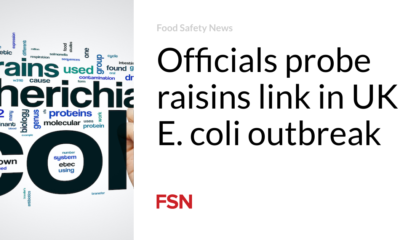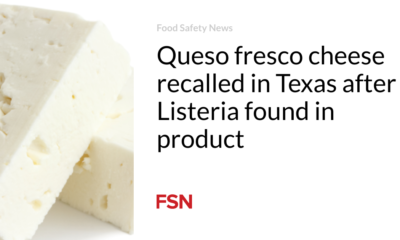Food
Botulism affects two people in Germany; link to Russian product

In Germany, a few people have become ill with botulism after eating pickled mushrooms from Russia.
The two confirmed cases were caused by botulinum neurotoxin A. Symptoms started in April and May. Both sick people ate a mushroom-in-brine preserve of milky white gill gills.
A laboratory in Germany, based at the Robert Koch Institute (RKI), found botulinum neurotoxin type A in an unopened jar of the product from the second patient’s household. The 500 gram item was produced on November 20, 2023 and expires on May 20, 2025.
Information from the Rapid Alert System for Food and Feed (RASFF) shows that it was also spread to Belgium, the Czech Republic, Germany, Italy, Luxembourg, Spain, Sweden, Switzerland and the United Kingdom. Authorities took action, including public warnings, recalls and withdrawals.
The European Center for Disease Prevention and Control (ECDC) said it is monitoring the event and contacting Member States and the European Food Safety Authority (EFSA).
“Given the distribution of the product concerned in EU countries and its long shelf life (May 2025), the risk of botulism is high among consumers who have purchased the product concerned and do not return it to the point of sale,” ECDC said.
So far this year, Germany has reported six cases of all forms of botulism, compared to 33 cases in the same period in 2023.
Botulinum poisoning is a rare but life-threatening condition caused by toxins produced by the Clostridium botulinum bacteria. With foodborne botulism, symptoms typically begin 18 to 36 hours after eating contaminated food. However, they can occur as early as six hours or up to ten days later.
Symptoms may include double or blurred vision, drooping eyelids, slurred speech, difficulty swallowing or breathing, paralysis (especially of the muscles used for breathing), a thick-feeling tongue, dry mouth, and muscle weakness.
(To sign up for a free subscription to Food Safety News, Click here.)
(To sign up for a free subscription to Food Safety News, click here.)













